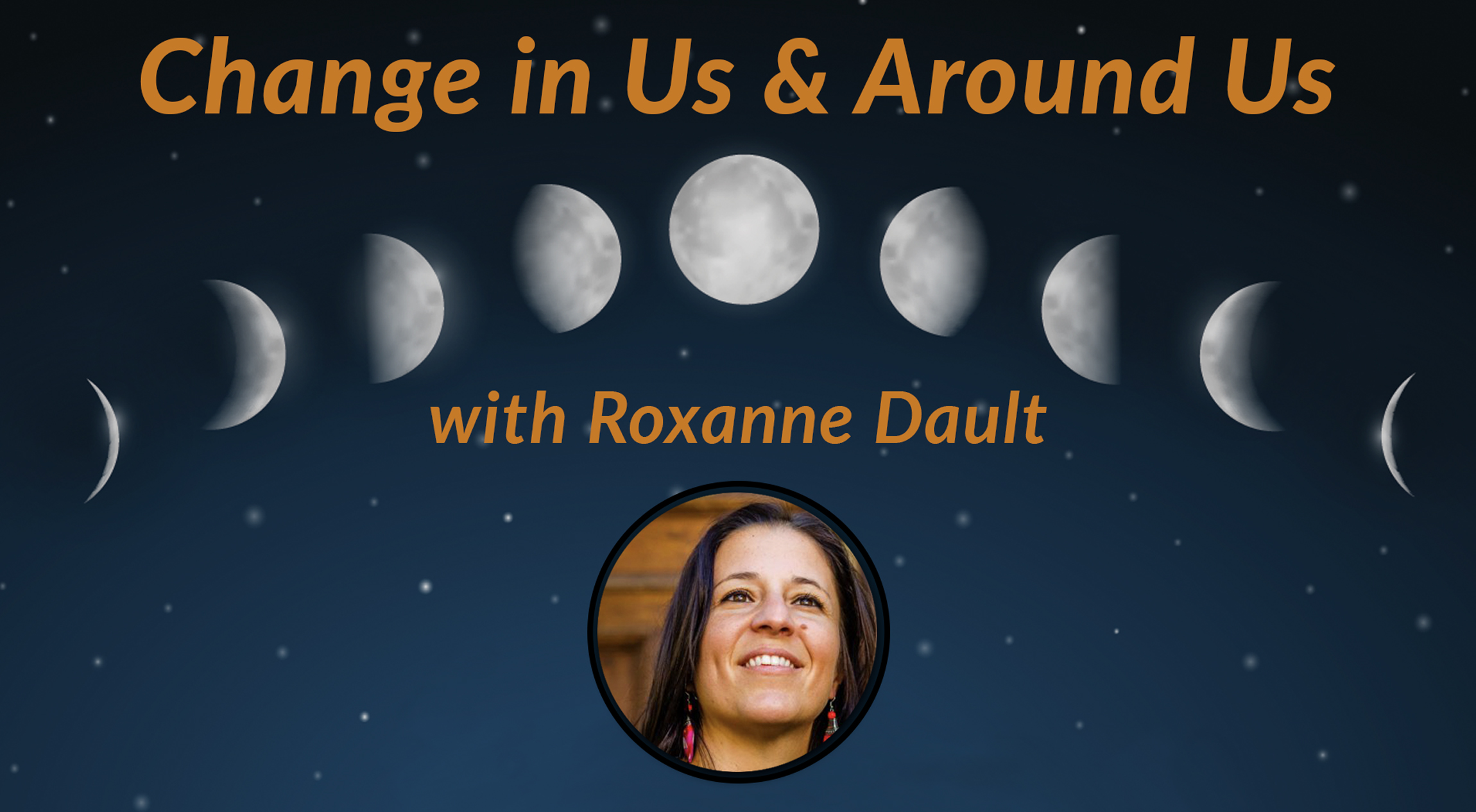Change in Us & Around Us: Mini Retreat
Wednesday, October 11, 6 – 9 pm ET
Register for this program here.
Roxanne Dault has been dedicated to this path for almost two decades, sitting on long retreats both in Asia and in the West. She is a graduate of the IMS Teacher Training Program and teaches meditation in Canada, the US, and France.
A Guiding Teacher at True North Insight, Roxanne teaches in different settings where she lives in Tiohti:áke (Montréal). Her teachings take root mainly from the lineage of Mahasi Sayadaw and are influenced by her love of nature and Indigenous wisdom. She is trained in Somatic Experiencing®, a body-mind approach aimed at relieving the symptoms of trauma and stress. She speaks French, English, and is learning her ancestors’ language, Anishinaabemowin. To connect with Roxanne, please visit her website.
In this Q&A with IMS Staff Writer Raquel Baetz, Roxanne talks about the importance of noticing change internally and externally and how understanding impermanence helps us cultivate wisdom and compassion.
Why did you choose to focus on change for this online program?
Change happens in every moment, and we can see it in different areas of our lives more vividly—in relationships, in work, in our bodies, in our emotions, in our health, and in the health of our loved ones. It’s a big part of being a human being. It is the universal characteristic at the center of life. And it can be unsettling and scary a lot of the time.
The more we become aware of change, the less surprised we are when things do change. When we have an understanding that life is constantly changing, we can have more freedom or peace in our minds and less difficulty in meeting change in our life.
For me, this is about really inhabiting your life. Not pushing things away, not trying to control, allowing life to be as it is. And figuring out how to welcome life fully and find a sense of ease in the complexity of it all. It’s about seeing the conditions that we don’t have full control over and discovering how we can find stability within the changing nature of life.
One of the most important things that the Buddha talked about is noticing change, the rising and passing of conditions—and not clinging to them. Many people are drawn to meditation and to practice when we notice change in our lives. It’s a common entry point to the practice so it’s a good place to start.
Why is it necessary to explore change both internally and externally?
In the Buddhist teachings, one of the refrains is knowing internally, externally, and both. When we are aware of change in ourselves, we can have a deeper compassion and a deeper understanding of what’s happening around us.
Internally, it’s about acknowledging the many changes that are happening in every moment. Some are very subtle, for example, knowing this breath is ending right now. And some are quite big, for example, a change in health or an ageing body.
Change happens around us too. For example, the people around us change. Sometimes we have this fixed idea that some person—a parent, partner, or friend—will always be like this. We put a particular identification around that being, but that being is changing too. Their emotional world is changing in them. If we can see that, become aware of it, we may be able to have more space to hold them, be with them, support them, and welcome them fully as they are.
For me, the characteristic of anicca, or impermanence, is about staying curious, interested, wanting to understand, wanting to ask questions, and be open to noticing what’s happening around me. Can I learn more about the world that I live in, the injustices that are around me, the environment that needs our support? Can we notice the change that’s there? And how can I help? How can I be of support?
When we notice change in ourselves and around us, we can choose a better response, one that’s based in more compassion, wisdom, equanimity, and stability so that we can act in our world with kindness.
Who is this program appropriate for and what can they look forward to?
It’s for anyone who is curious about their practice. It’s for people who are new to practice, as well as those who are more experienced and want to come back to the basics of their practice and remember their intention for practicing.
We will look at the Four Foundations of Mindfulness and we will have some time to explore the different ways that we can bring mindfulness into our daily life. We will touch on the different aspects of meditation in general and we’ll have some time for questions about meditation and the false perceptions we may have around meditating. And we’ll have some time to practice together.
What do you hope people will take away from the experience of this program?
I hope that participants get to taste a bit of the possibility that this practice can offer. I hope it makes them curious to learn and explore more, particularly around this aspect of change. When we start to become more aware of change, we can have more ease in meeting the changes in our daily lives.
I hope it gives them more compassion towards themselves and towards the world that they live in. And I hope the practice brings them more peace—peace of mind and peace of heart.
Also, I hope it encourages them to practice a bit more or join an in-person retreat or one of the longer online programs or join a sangha. Just being in community can have a big impact in the way that we move through life.



